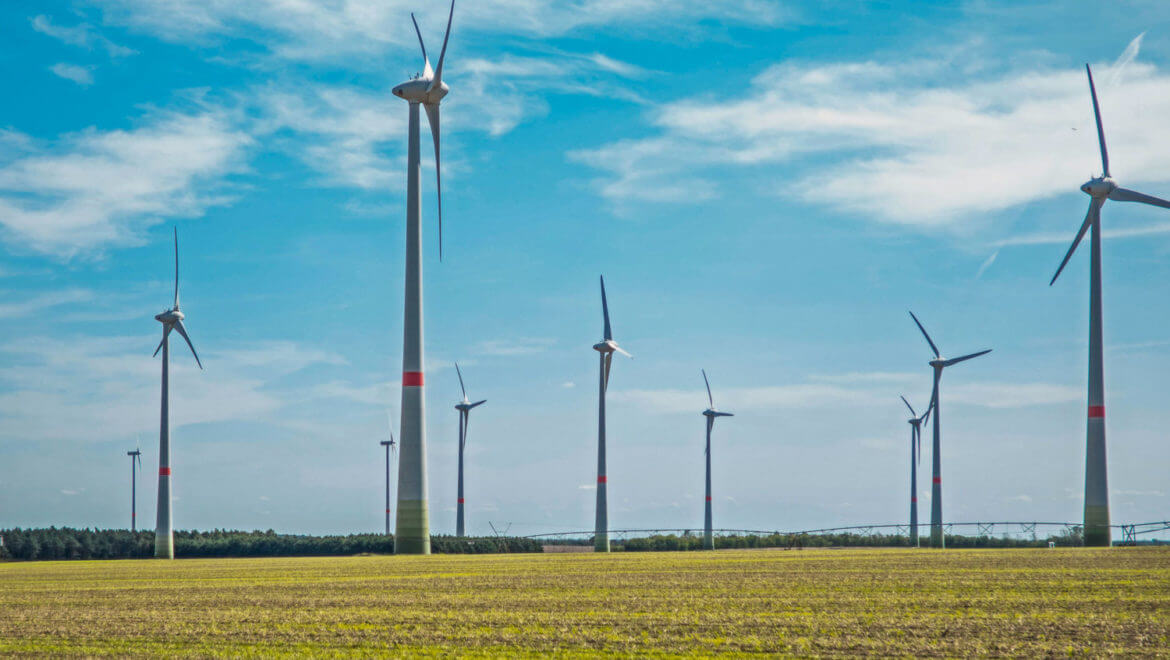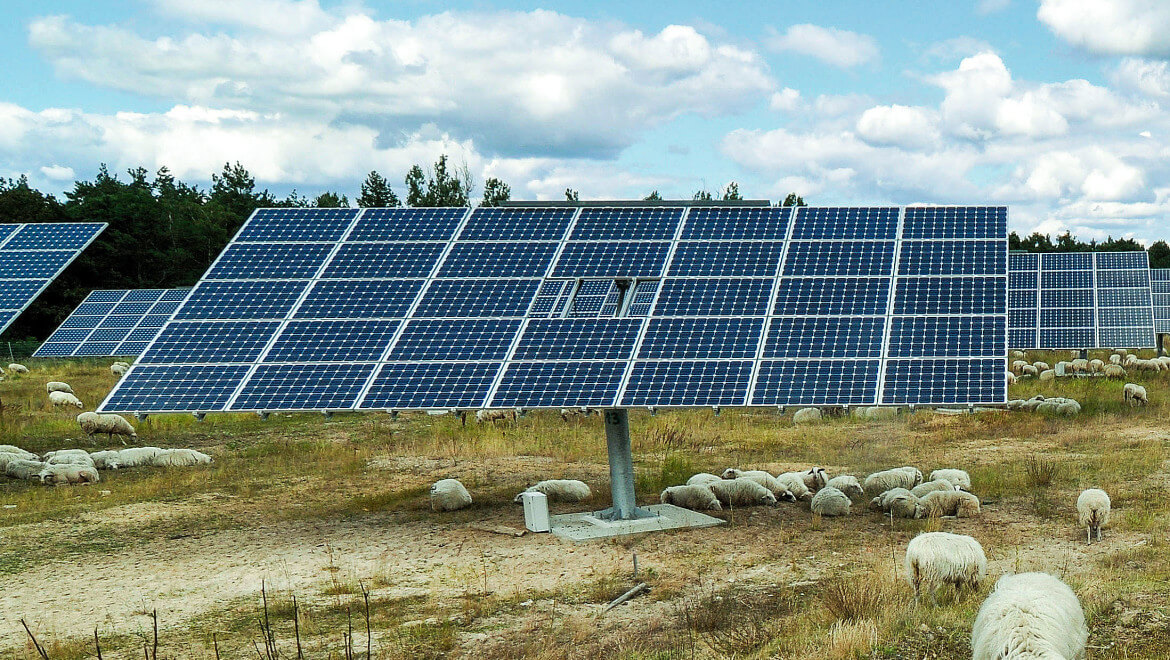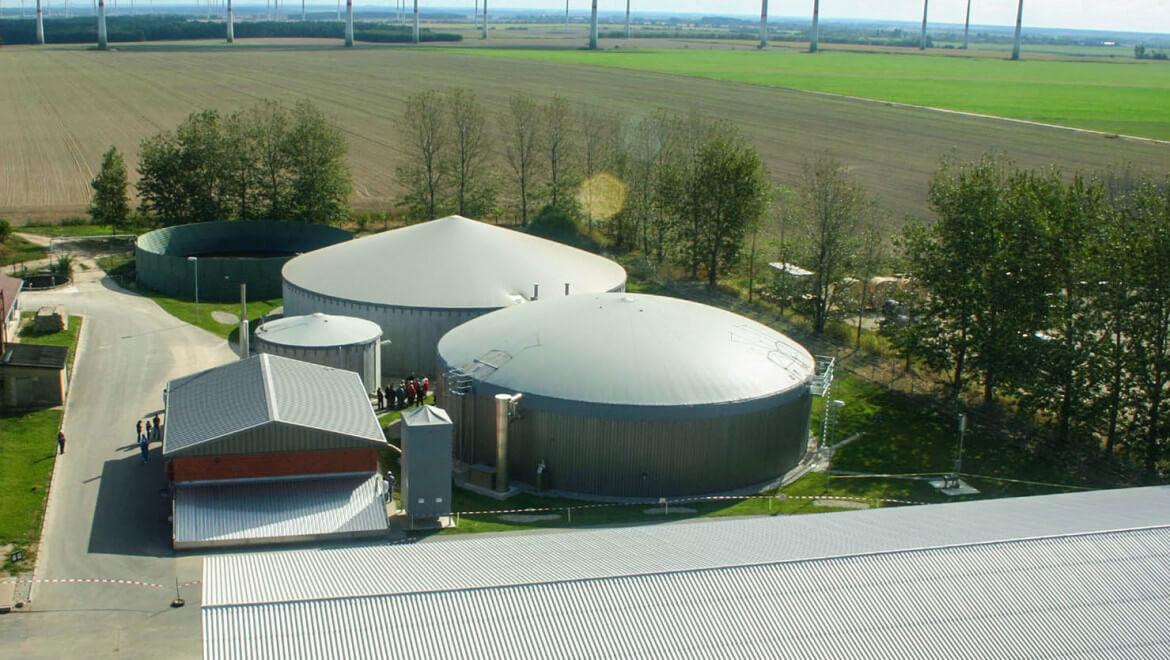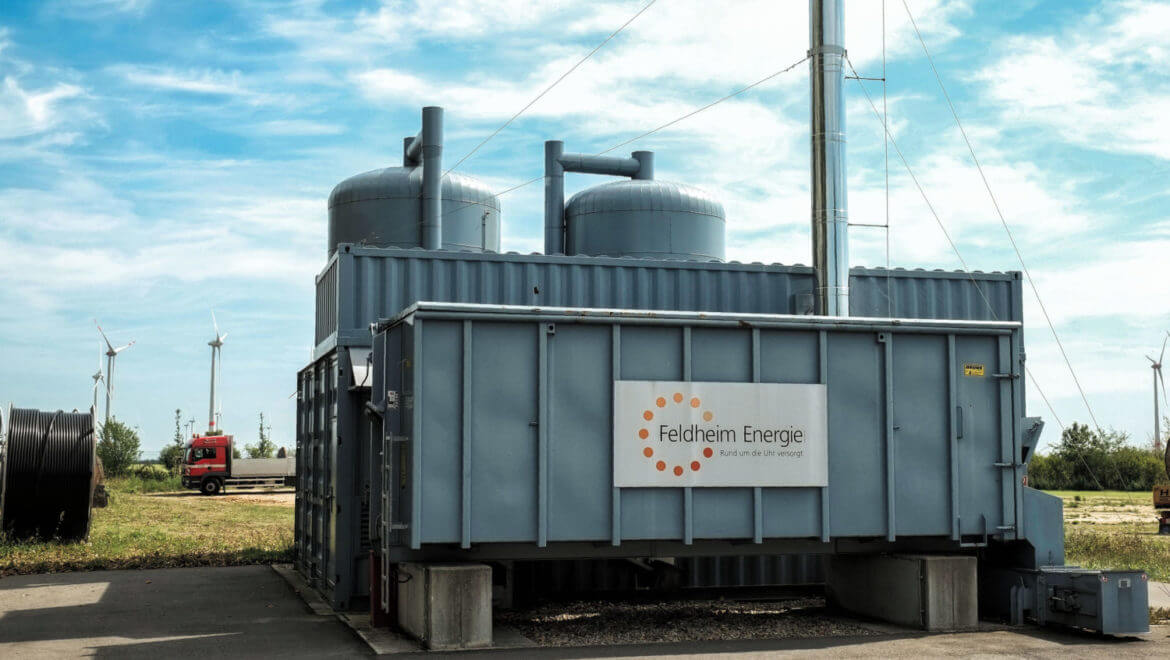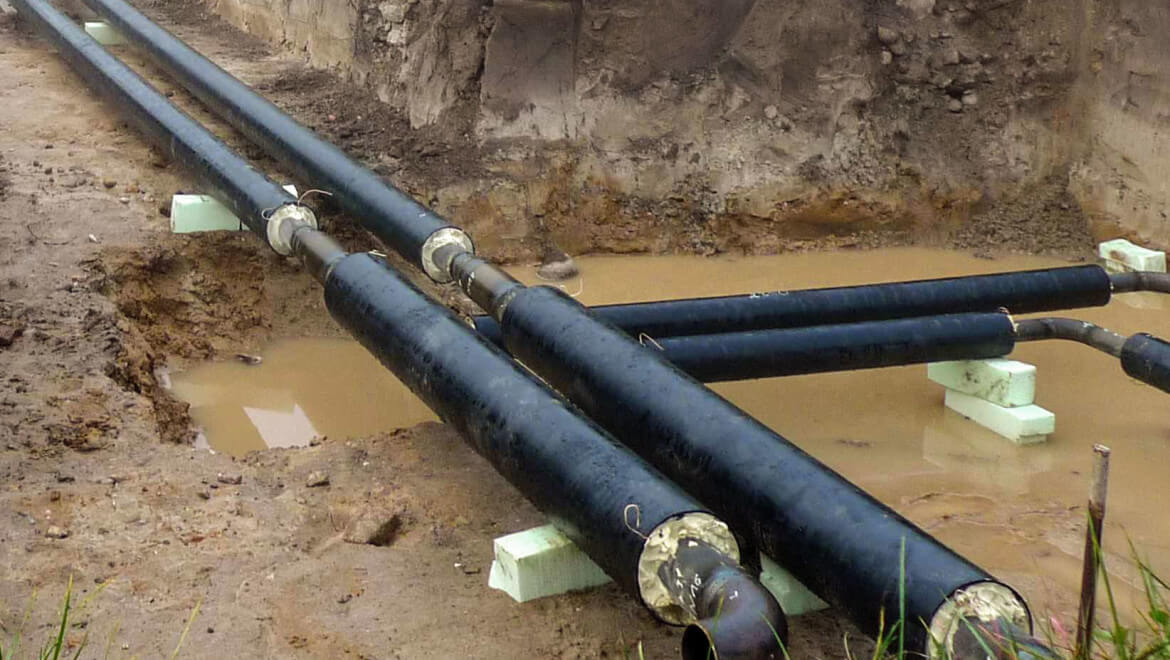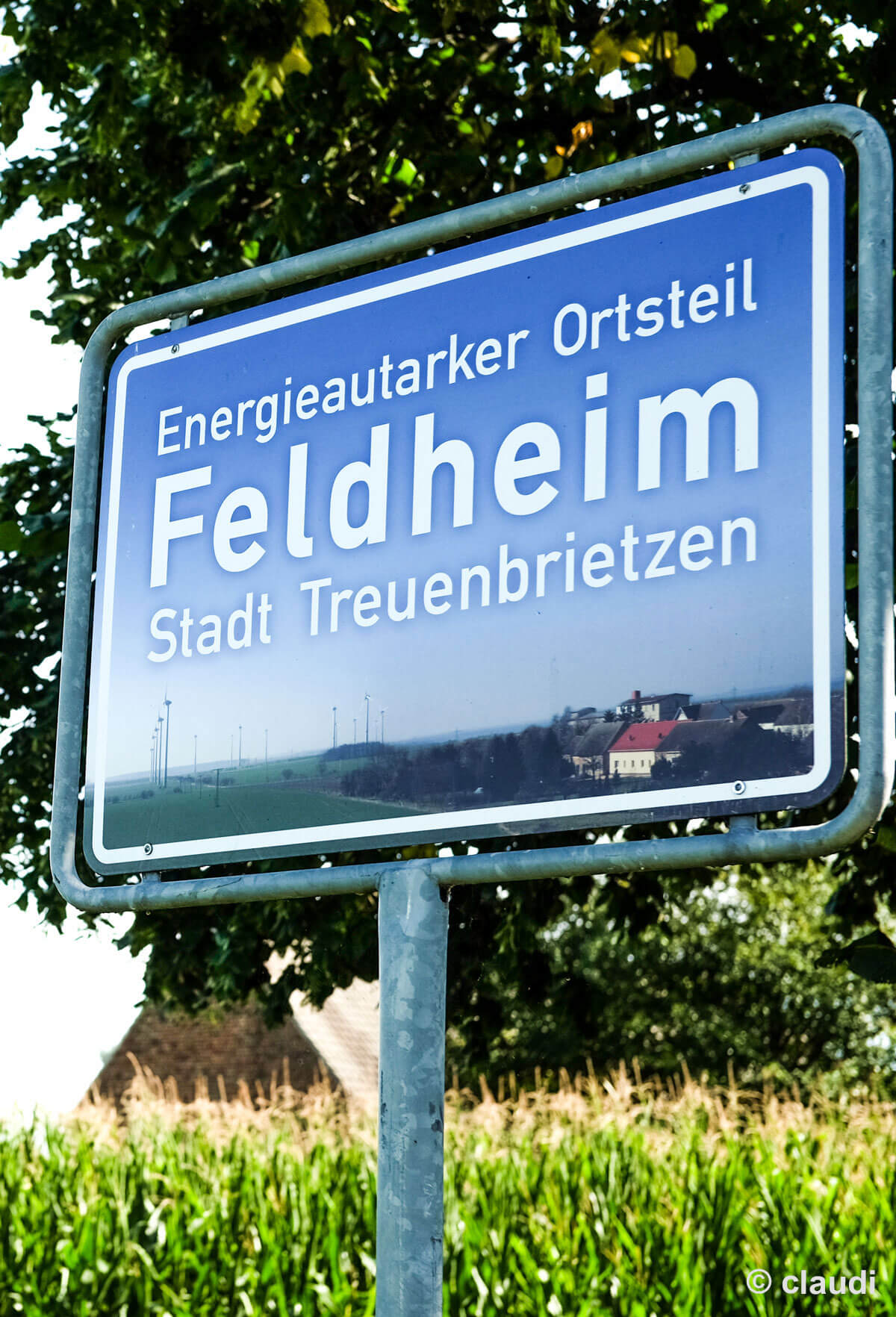Energy supply to the energy self-sufficient village of Feldheim via private local heating and electricity grids
Success through cooperation
One of the most spectacular concepts for supplying businesses, private households and local government with renewable energies on a decentralised, self-sufficient basis is currently being implemented in Feldheim, a district of Treuenbrietzen, a town in Brandenburg. The project owes its success to the excellent partnership between the municipality of Treuenbrietzen, the residents of Feldheim and the project developer, Energiequelle GmbH.
Self-sufficient supply
Energiequelle GmbH designed the various components of this concept – which includes cutting-edge, state-of-the-art wind power systems and biogas plants –, installed them as turnkey systems and linked them via the new heat and power distribution system to form a regional energy supply grid.
Reliability under peak loads
Independence with a private grid
Financed by pooling resources
The owner of the separate power grid for supplying electricity to connected consumers is Energiequelle GmbH and Co. WP Feldheim 2006 KG.
However, the municipality and the local residents were unable on their own to put up the substantial investments needed to build the separate electricity and district heating grids. Additional funds from the regional government and from EU programmes were therefore tapped into.

The components of the energy self-sufficient village
